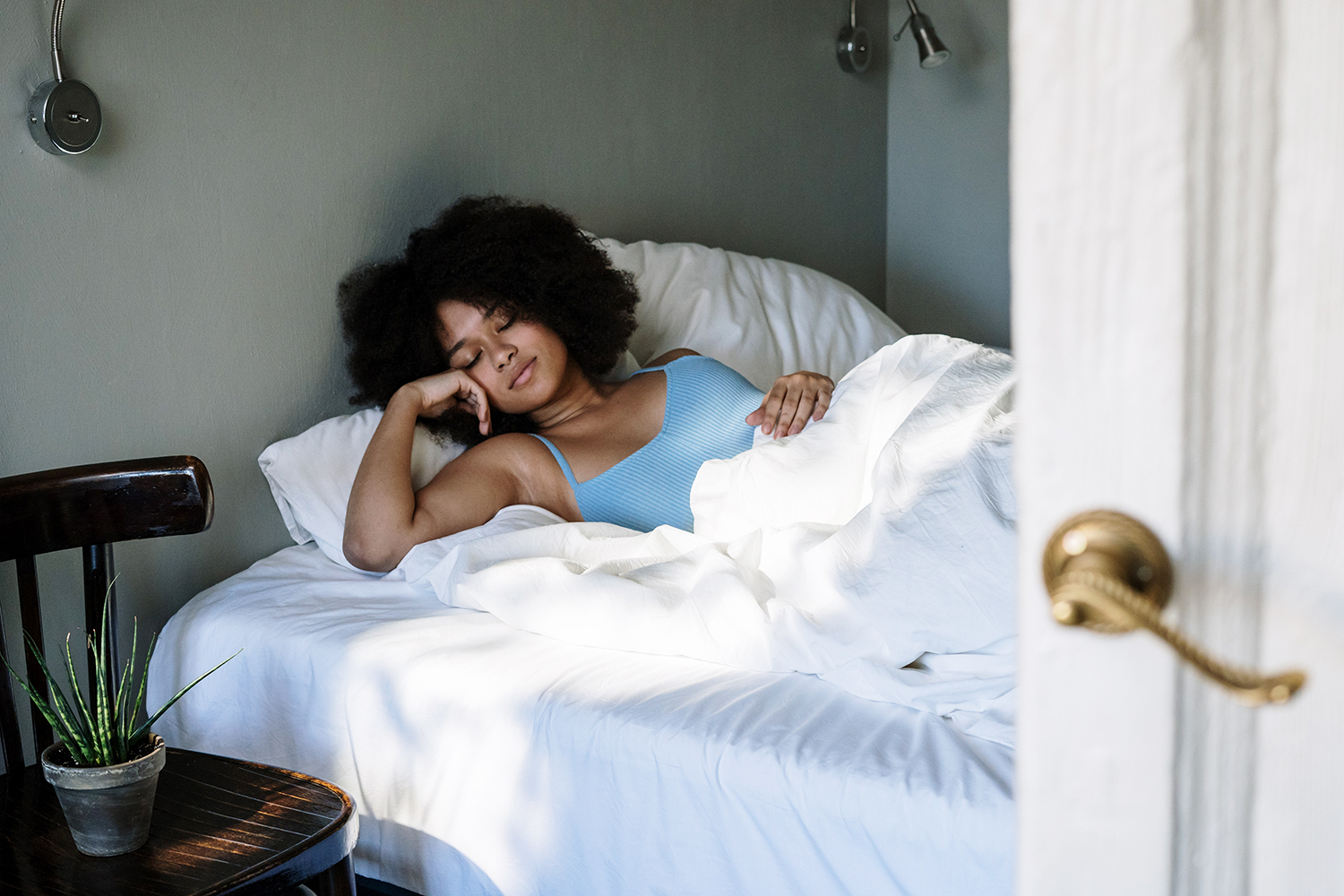Stress, anxiety, screentime overload and bad habits transform how we sleep, and not in a good way. We gathered a few tips to make your next bedtime your best night sleep yet.
We have heard it repeatedly; a happy sleep pattern is essential for our mental and physical wellbeing. With the stress and anxiety produced by the current pandemic, we have all experienced some difficulties sleeping, and it has affected us on multiple levels.
A bad night sleep can have long term effects on us and, as confirmed by Dr. Oliver Amar, one of the UK’s leading cosmetic and aesthetic surgeons, those effects include premature ageing: “Sleep plays a key role in our health across the board, and this is no different when it comes to your skin. One of the main complaints I’ve heard from my patients over the past few months is how lockdown has made them feel tired and worn out, due in part to a disruption of their regular sleeping routine.”
We can’t control what happens in the world and how these events affect us. Still, there is a path to achieving a good night sleep and eco-friendly bedding brand Snug identified five Ts of a successful sleeping experience: timings, temperature,taste-buds, tog and technology.
Timings happy sleep
The first rule to achieve good sleep is to make sure you get enough of it! Of course, each person needs more or less sleep to feel fresh in the morning, but there are some general recommendations to follow: “I would highly recommend going to bed and waking up at the same time, aiming for at least seven or more hours a night”, says Dr. Amar.
Temperature
Have you ever woken up in the middle of the night feeling warm and sweaty? For Dr. Ramlakhan, this may depend on your relationship with heat and cold and self-awareness is the key issue. Research shows that 32% of people sleep better in a cooler room at night. This being particularly relevant for women going through menopause and perimenopause. This also includes certain phases of the menstrual cycle, when you’re more likely to overheat. You might find it cold at first, but the bedroom should be seventeen degrees Celsius in order to keep the body at a tepid temperature that stimulates satisfying sleep.
Taste-buds
Your taste-buds (and your gut) need a break ahead of bedtime too. To avoid going to bed while your digestion is in full swing, try to eat the final meal of the day at least three hours before bed. This might mean saying goodbye to snacking in front of the tv, but it’s for a good cause. If you are a coffee and tea drinker, think about your caffeine intake as well and have your last cup of coffee or black tea ten hours before going to bed.
Tog happy sleep
To make sure you have a perfectly comfortable night sleep, make an effort to change your duvet tog with the seasons. Again, we are all different but as a general rule, you should use a 4.5 tog for warmer nights, 10.5 for the in-between and 13.5 when it’s colder.
Technology
It’s time to stop scrolling through TikTok before bed. This is no news, looking at a screen just before bad makes falling asleep more difficult and disrupts our sleep patterns. Switch off your phone and your laptop at least ninety minutes before going to bed and make sure you engage in relaxing activities for the last couple of hours of the day. If activities like journaling or meditation are not for you, you can read a book, do a puzzle or, if you don’t live alone, simply have a face to face conversation with your flatmates.
As Dr. Amar said, “Sleeping in a slightly colder room, avoiding blue/bright light right before bed, and sleeping in total darkness (using blackout curtains or a sleep mask) will help you to get some quality rest, and in doing so will dramatically boost the look and feel of your skin over time.”
For updates on everything Snug-related, including how to achieve happy sleep, please visit www.snug-bedding.co.uk.
Picture: Cottonbro


